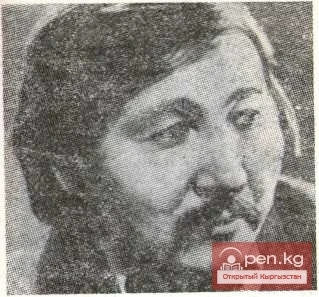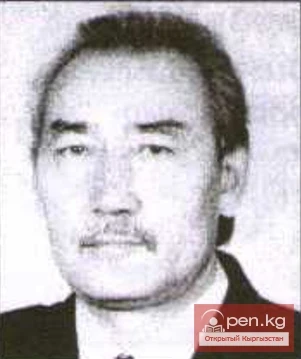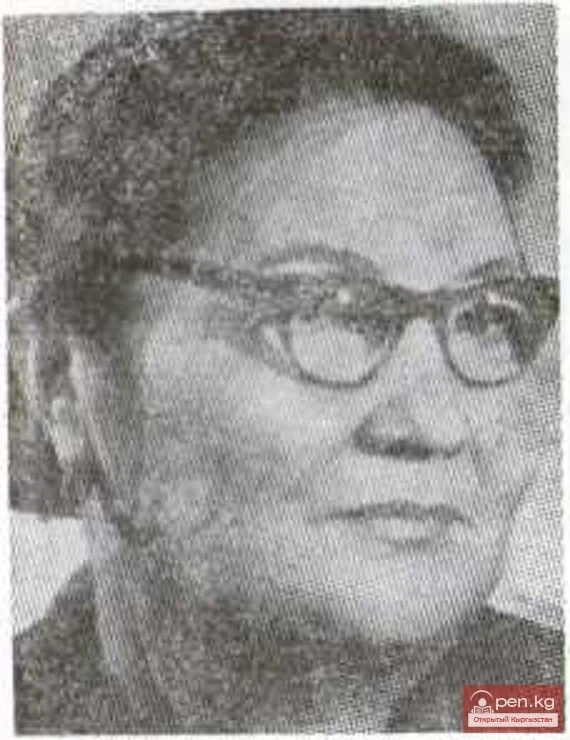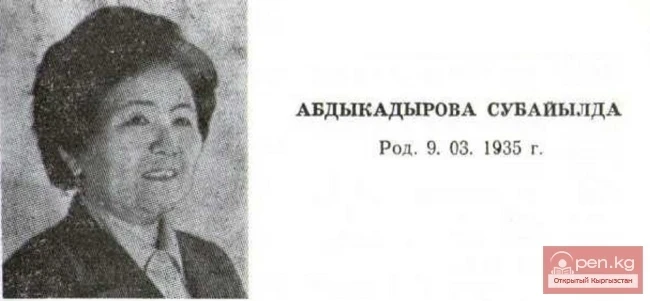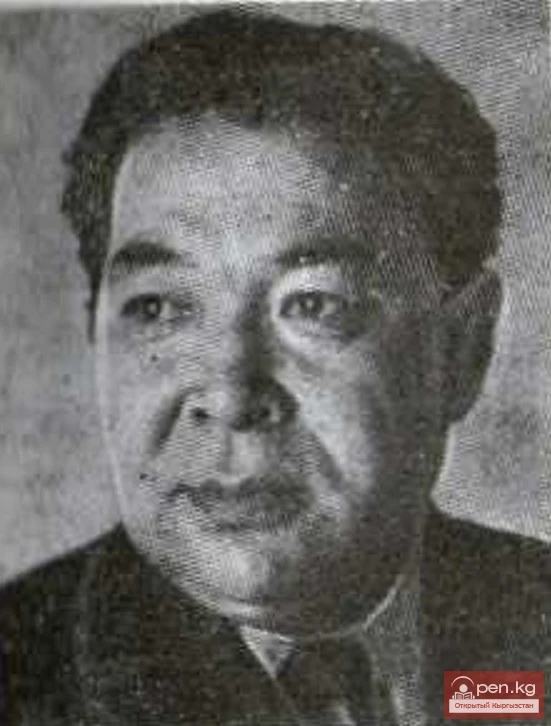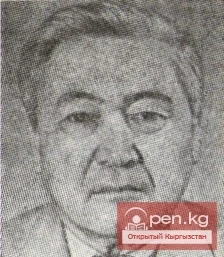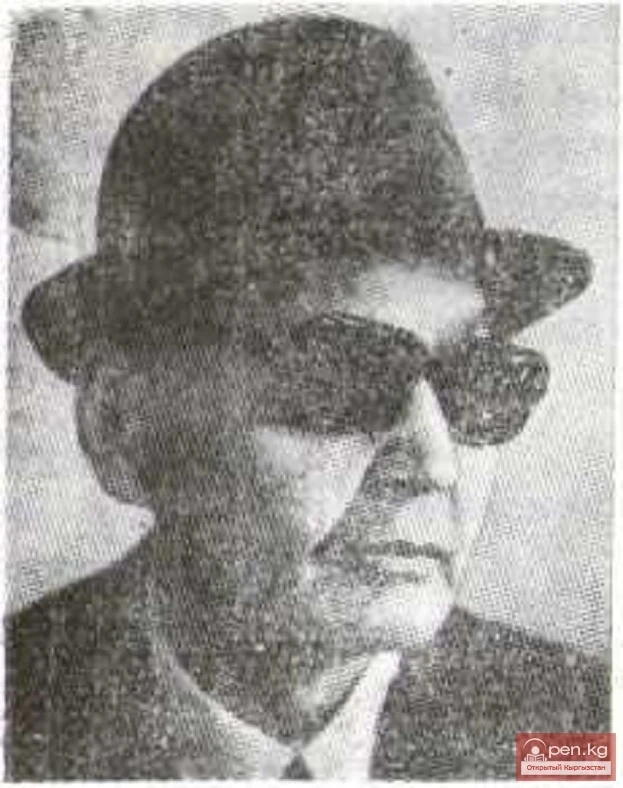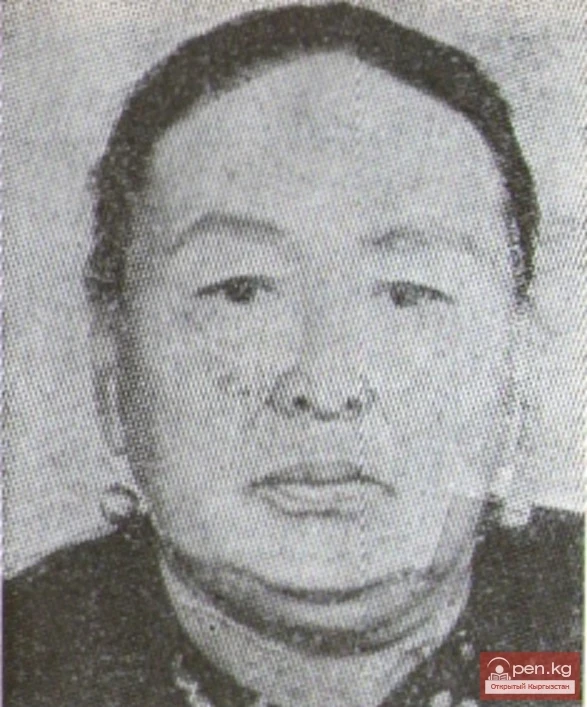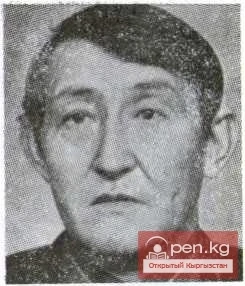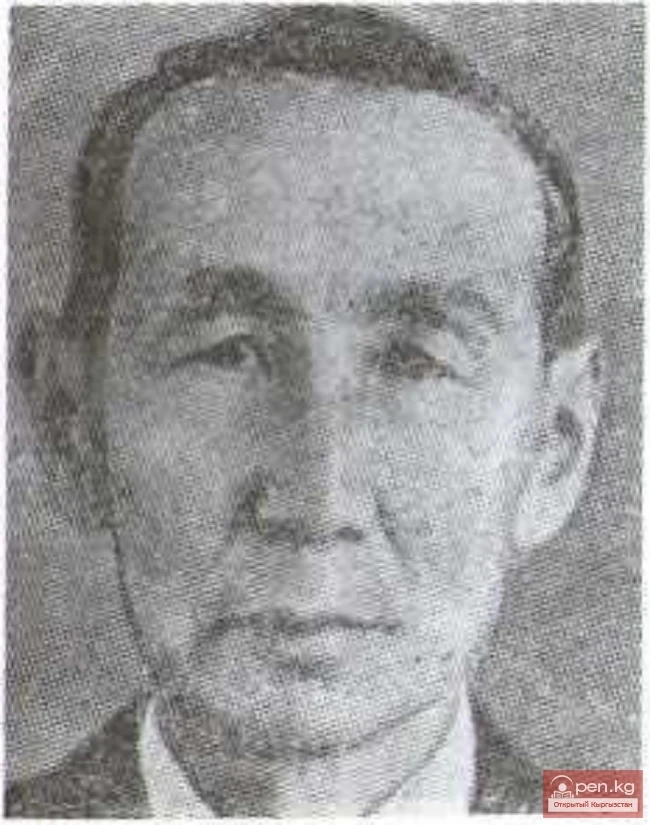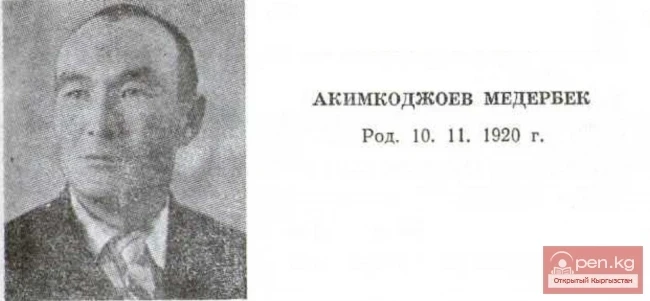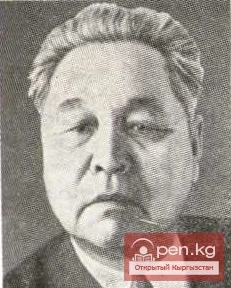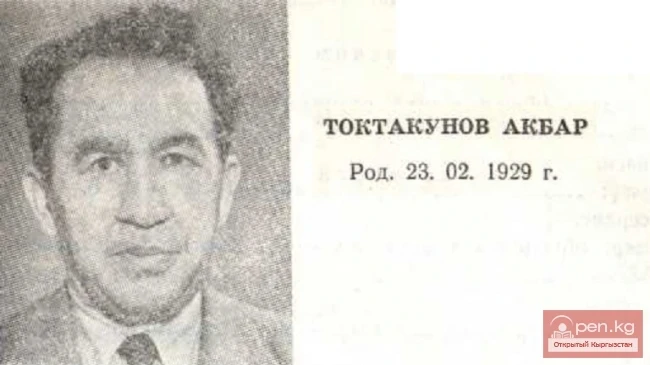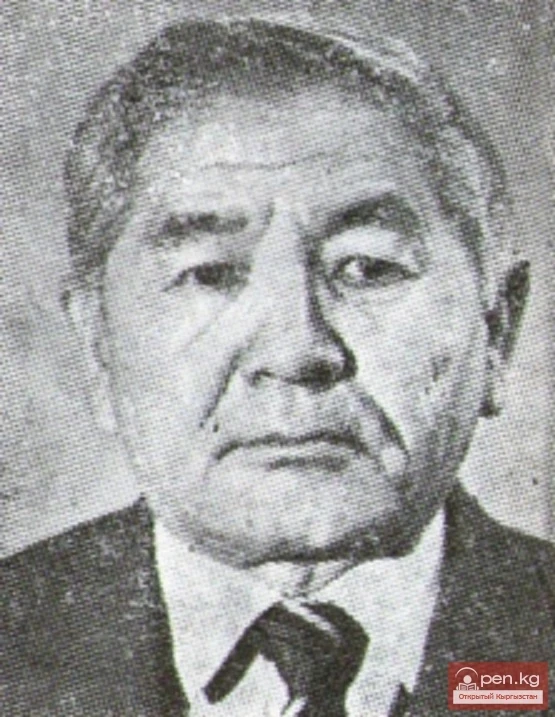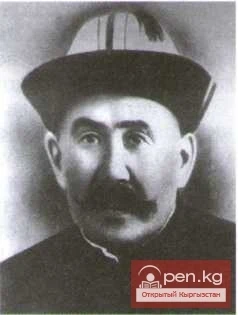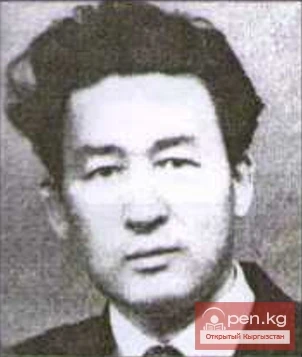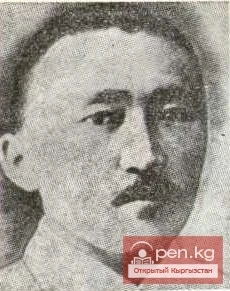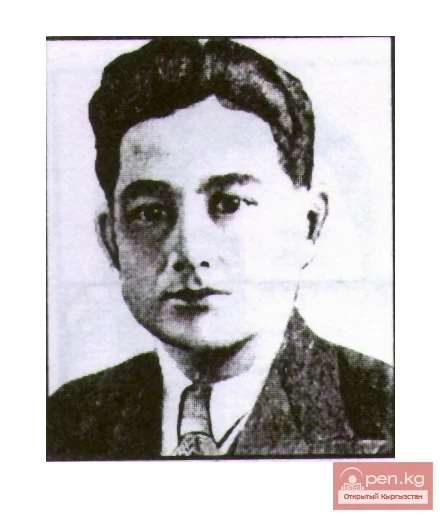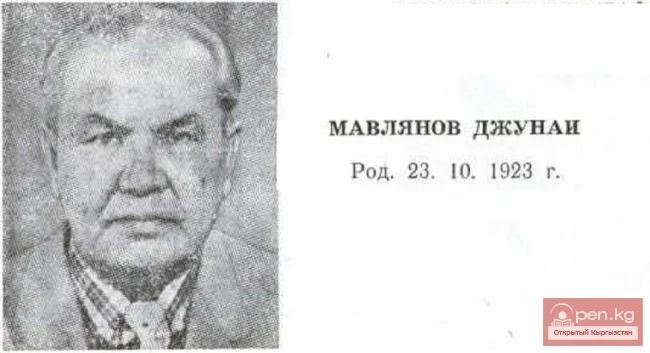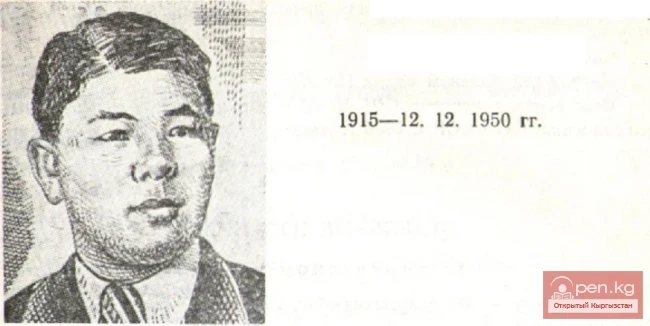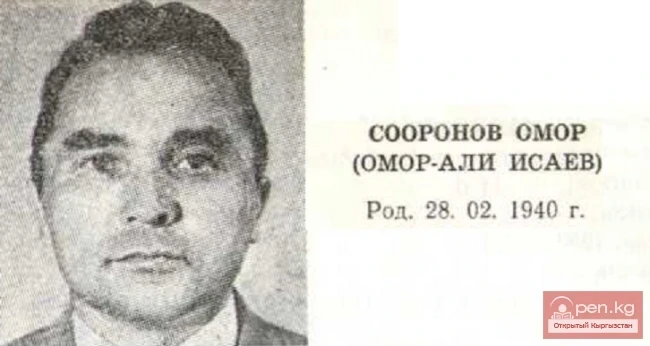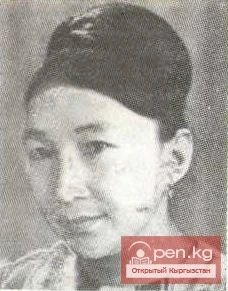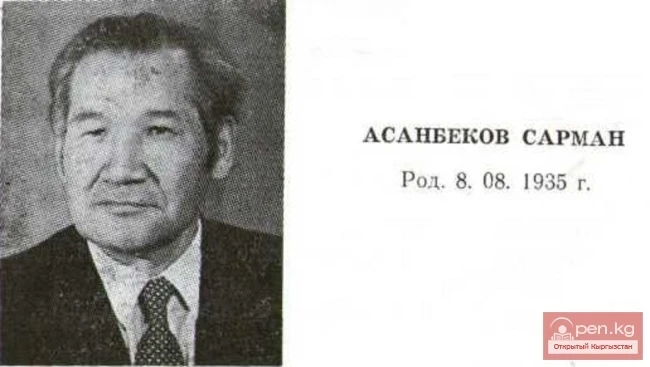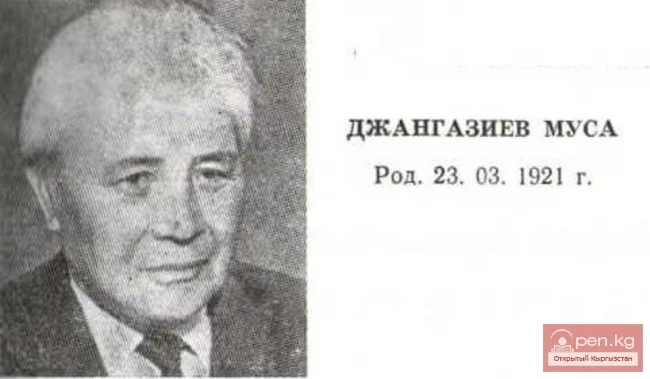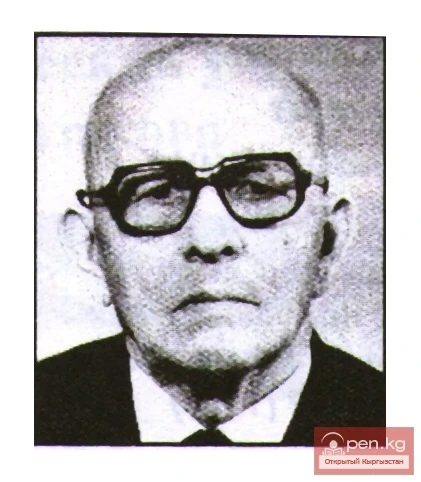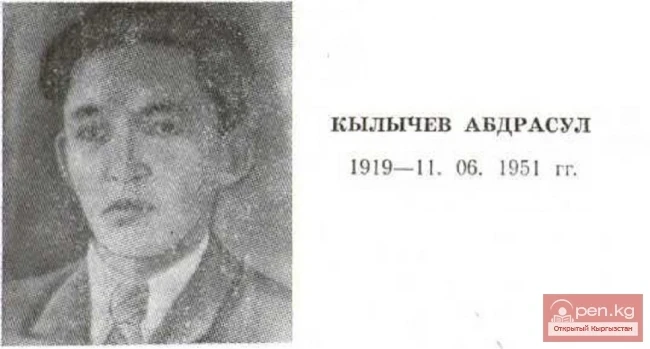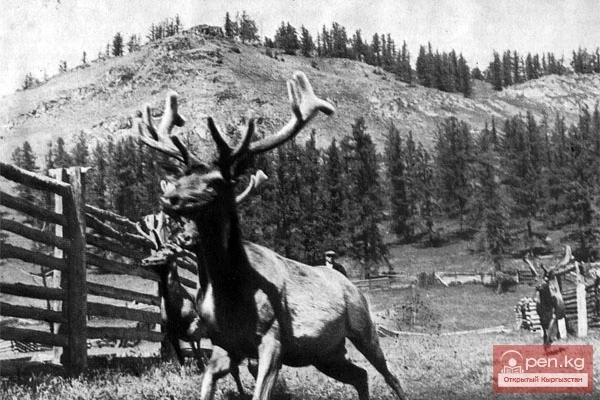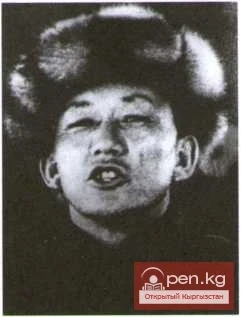 Musa Bayetov (1902—1949) is the author of four dozen songs. The best of them are created in lyrical genres. Even in his youth, when Bayetov began his creative activity at the Naryn city radio station as a performer, he created the songs "Milaia" ("Zharoo-ker") and "Prosyipayus" ("Oygonom"). Later, as a soloist of the Kyrgyz State Philharmonic, he composed the famous songs "Mudraia" ("Daanishman") and "Uchilsia ya v stolitse" ("Okudum борбор шаарынан"). The lyrics of most of the songs belong to Bayetov himself.
Musa Bayetov (1902—1949) is the author of four dozen songs. The best of them are created in lyrical genres. Even in his youth, when Bayetov began his creative activity at the Naryn city radio station as a performer, he created the songs "Milaia" ("Zharoo-ker") and "Prosyipayus" ("Oygonom"). Later, as a soloist of the Kyrgyz State Philharmonic, he composed the famous songs "Mudraia" ("Daanishman") and "Uchilsia ya v stolitse" ("Okudum борбор шаарынан"). The lyrics of most of the songs belong to Bayetov himself.The song "Daanishman" exists in two recordings made by A. Maldybaev and, later, K. Dyushaliev:
I heard your name from afar,
But I am afraid to come to your aiyl.
Love for you pulls me like a magnet,
It draws me stronger and stronger.
I heard news of you from afar,
But I am afraid to come to your clan.
I am so strongly attached to you,
That my feelings do not give me peace.
The title of the song has an ancient Iranian root with a deep and multifaceted meaning: "knowing, wise, clear." The melody is a vivid example of traditional vocal lyricism. It features a small range in the introductory part of the melody, a flowing, smooth rhythm, and a bright vocalization. The climax is located at the "golden section," marked by an expansion of the melodic range, fragmentation of strong metric rhythmic beats, and an increase in resonance. As a result, the melody "dissolves" in the accompaniment of the komuz.
In the late 1930s, M. Bayetov made a unique discovery: he began to play a new instrument for the Kyrgyz — the so-called Eastern Tatar harmonica. Subsequently, Musa Bayetov and Asek Jumabaev performed original lyrical and humorous songs "Kuplyu yabloko" ("Alma alam"), "Ah vy, devushki" ("Kyzdar ai"), "Toskuyu" ("Sagyndym") accompanied by this instrument.
One of M. Bayetov's creative achievements was the song "Berkut nad gorami" ("Aylangan toonun burkutu"), also known as "Pesnya uznika" ("Tutkun yry"). He composed it in 1940 to the verses from the cycle of Siberian exiles "armans" by Toktogul Satylganov. In the same year, in honor of the 75th anniversary of the great akyn, M. Bayetov performed it with the accompaniment of the komuz and symphony orchestra arranged by V. Vlasov. The song firmly entered the repertoire of many professional and amateur singers. It impresses with its vivid imagery and deeply embodied mournful character.
